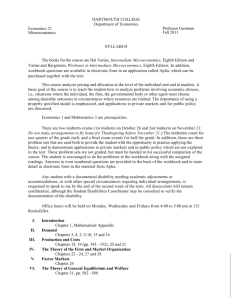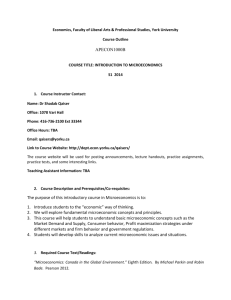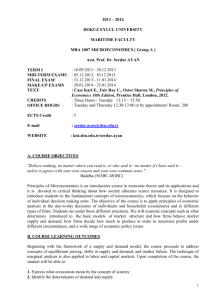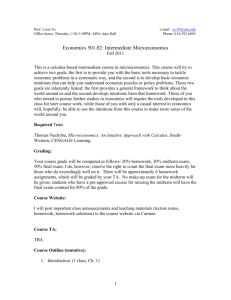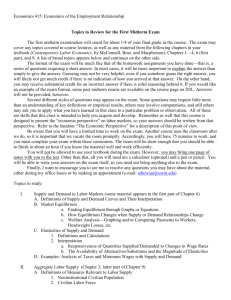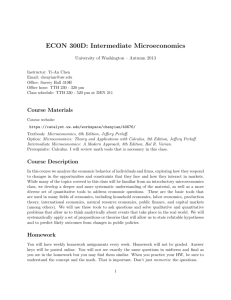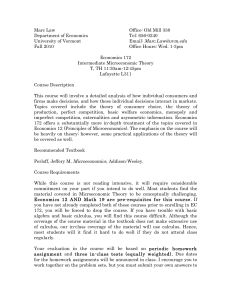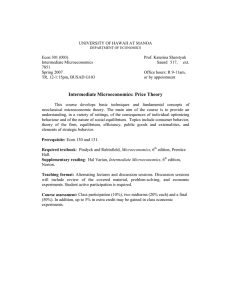Syllabus: Welfare Economics and Equity [ECONOMICS and EP&E
advertisement
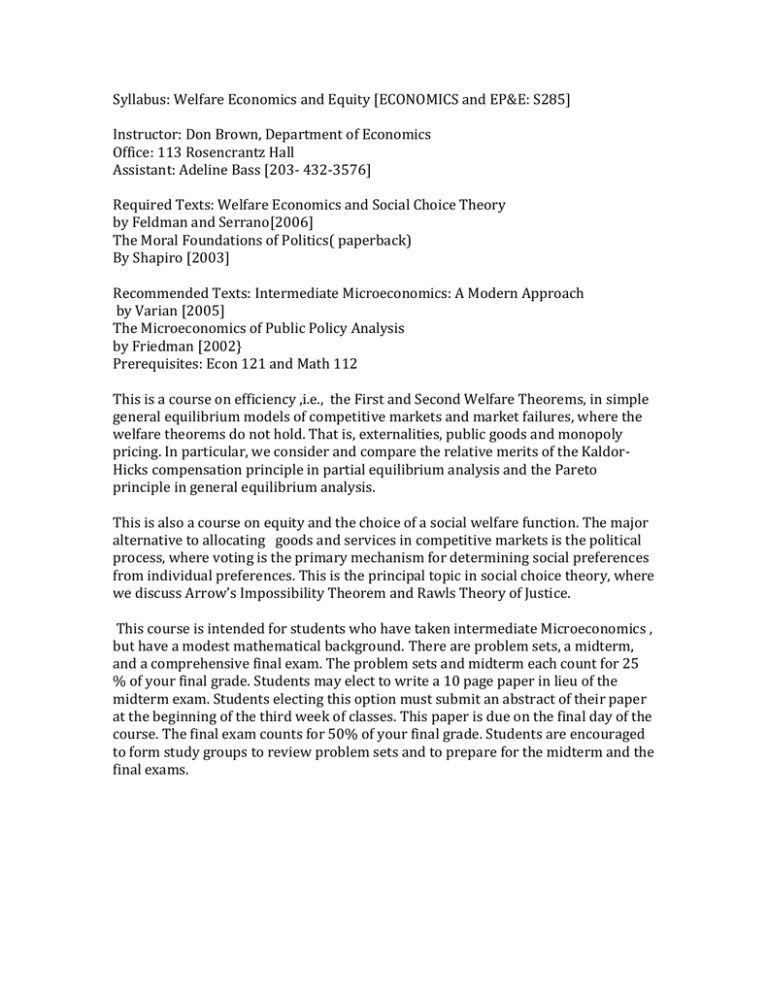
Syllabus: Welfare Economics and Equity [ECONOMICS and EP&E: S285] Instructor: Don Brown, Department of Economics Office: 113 Rosencrantz Hall Assistant: Adeline Bass [203- 432-3576] Required Texts: Welfare Economics and Social Choice Theory by Feldman and Serrano[2006] The Moral Foundations of Politics( paperback) By Shapiro [2003] Recommended Texts: Intermediate Microeconomics: A Modern Approach by Varian [2005] The Microeconomics of Public Policy Analysis by Friedman [2002} Prerequisites: Econ 121 and Math 112 This is a course on efficiency ,i.e., the First and Second Welfare Theorems, in simple general equilibrium models of competitive markets and market failures, where the welfare theorems do not hold. That is, externalities, public goods and monopoly pricing. In particular, we consider and compare the relative merits of the KaldorHicks compensation principle in partial equilibrium analysis and the Pareto principle in general equilibrium analysis. This is also a course on equity and the choice of a social welfare function. The major alternative to allocating goods and services in competitive markets is the political process, where voting is the primary mechanism for determining social preferences from individual preferences. This is the principal topic in social choice theory, where we discuss Arrow’s Impossibility Theorem and Rawls Theory of Justice. This course is intended for students who have taken intermediate Microeconomics , but have a modest mathematical background. There are problem sets, a midterm, and a comprehensive final exam. The problem sets and midterm each count for 25 % of your final grade. Students may elect to write a 10 page paper in lieu of the midterm exam. Students electing this option must submit an abstract of their paper at the beginning of the third week of classes. This paper is due on the final day of the course. The final exam counts for 50% of your final grade. Students are encouraged to form study groups to review problem sets and to prepare for the midterm and the final exams.

